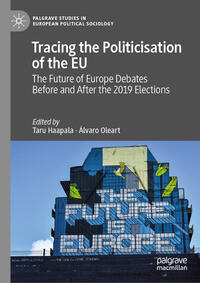
Departing from the idea that political controversies are embedded in the very framework of European integration, this volume focuses on the relationship between politicisation and European democracy. The contributors to this edited volume trace the various ways of understanding ‘politicisation’ before and beyond the 2019 European elections. The aim is to offer constructive reinterpretations of the concept for further research in the field. Encompassing different approaches, the book shows a plurality of perspectives and provides innovative analytical tools to make sense of the phenomenon of politicisation in the EU context. Assuming that EU politicisation can be seen both as vice and virtue depending on the way in which it takes place, the authors analyse under what conditions it has a positive or negative influence over European democracy. Emphasising that scholars ought to be aware of the normative assumptions underlying the conceptualisation of politicisation, the book illustrates how many of the features in European politics that were intensified during the Covid-19 pandemic were already present earlier. Tracing the Politicisation of the EU will be of interest to students and scholars in EU Studies, Comparative Politics, Media and Communication, Political Theory and Political Sociology.